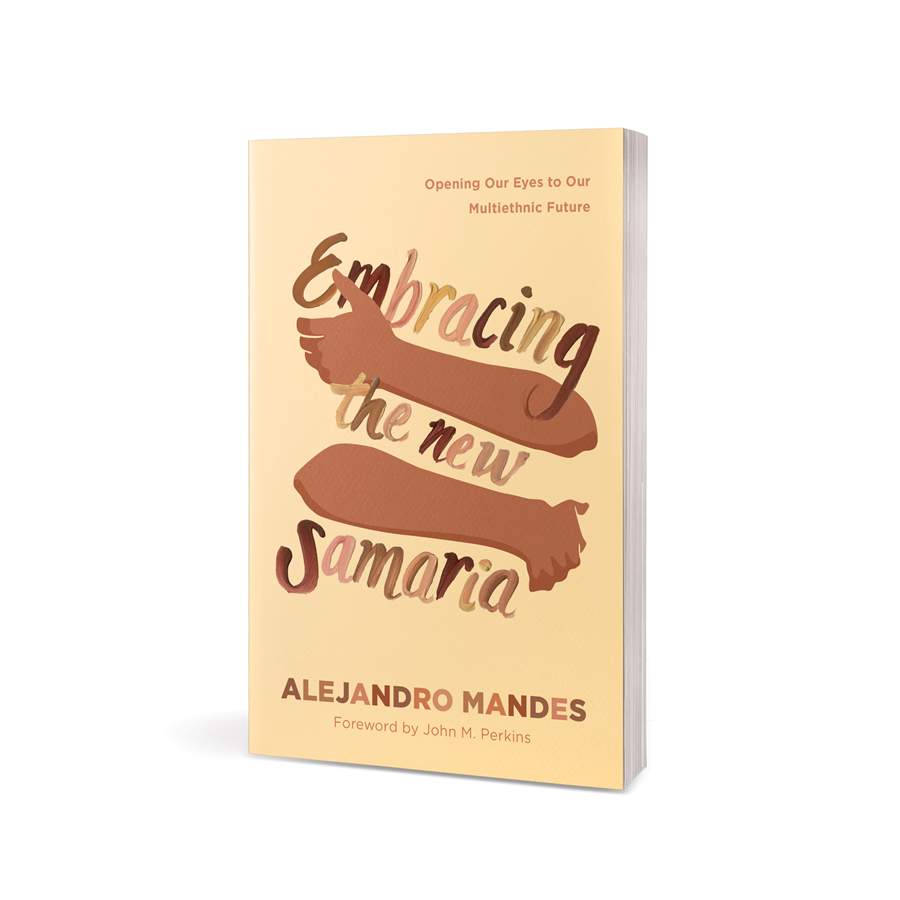A few years ago, there was a church in Texas that was expanding their vision of God’s Kingdom by becoming an intentional multiethnic community. They had done the hard work of getting to know their neighbors, growing in love, and reaching out with the hope of making disciples among them. They decided to start a Spanish-language service, so they hired a part-time Latino pastor to lead the services. Once everything was in place to begin, the leadership team from the English-speaking congregation realized there was one point of theology in which the Spanish- speaking leaders disagreed—and they wanted to come to an agreement on this point before moving forward.
The English-speaking leadership team had been extremely generous and encouraging the entire time, and their request was not necessarily unrealistic, but the last-minute change made the Spanish-speaking leaders uncomfortable. They did not feel called to change their position on this theological point. Both sides were to the point of grieving. After much prayer and consideration, the English-speaking leaders agreed to not make it a point of separation. In fact, the leadership team made it clear that, even though the theological nuance was still important to them, they valued the relationship more.
The Far-Reaching Impact of Humility
To be honest, it is rare that I see an example like this of humility and deference to the minority. The impact of this decision was tremendous. It generated lots of love and mutual trust, and the result was a further melding of hearts. At the business meeting where it took place, the white church took on the Hispanic pastor as full-time staff and elected members of the Hispanic church as elders. Eventually, the Hispanic pastor became the outreach pastor for the whole ministry. Unfortunately, stories of unity such as these are rare, but if we are going to embrace the New Samaria of the future, we must learn how to be reconciled as one community.
While there is much to admire about being obedient to God in seeing, loving, and reaching the New Samaria, we must also succeed at being the New Samaria. What do I mean? The true test is whether the Great Commandment and the Great Commission are leading to the Great Transformed Community (GC3). In order to get to the point of true transformation, we must be one reconciled community.
Why Is Unity So Hard?
The word unity is thrown around a lot by Christians, especially optimistic ones, as a way of describing the vision for God’s people here on earth. Anyone who has a foundation of Christianity understands that division among God’s people is bad, and unity among his believers is what we should strive for. Sounds good . . . on paper. But in reality, not very many people have a true understanding of what it means, what it looks like, or even if it’s possible.
Can we really expect people of all ethnicities, races, socioeconomic levels, and political views to come together as one? It’s almost impossible to get a grasp on unity, especially when we log in to social media every day and our division and hate is staring us in the face.
The United States has recently been in the midst of racial and political unrest for some time. We have been seeing a disproportionate number of black people being killed by police, racial unrest, disagreements over the role of law enforcement, riots in our cities, neighborhood disparities, housing inequality, unfair treatment of immigrants and refugees, family separation at the border, and I could go on and on.
Recognizing the True Solution
This is a description, not a prescription of indictment. Politicians on both sides promise solutions that somehow evaporate after they are elected. The global pandemic has disproportionately affected people of color because our structures have set them up with the least ability to fight it off.
To be honest, I think more believers are paying attention to the political squabble than are listening to God. It’s all too common to see Christians pointing fingers about the immorality of one political party, when it is reported that the other party has similar issues. We are looking for “salvation by government.”
Don’t get me wrong. There are truly substantive issues at stake, and the role of government is important, but in this cultural moment it seems that we are no longer capable of listening to one another. We are called as Christians to use our prophetic voices to call out what is wrong and to influence change in this world, but it’s hard to be taken seriously when we can’t seem to agree with one another. This is not what Jesus intended for us.
Unity through Christ
It’s not hard to see what is stopping us from achieving unity of spirit. The injustice we see around us will never come to a complete end—at least not until Jesus returns and establishes his Kingdom here on earth. But in the meantime, two of our biggest impediments are a sense of entitlement/superiority among majority- culture folks and suspicion and lack of trust among people of color. We will never move beyond our conflicting values and theological differences unless we can humble ourselves and try to see from a perspective different from our own.
Our differences do not surprise God. He knew that our sinful nature would make it difficult for us to love across our differences. Yet, God clearly calls us to a standard of unity that will glorify him. In Ephesians 4:1-6, Paul writes: I, therefore, the prisoner of the Lord, beseech you to walk worthy of the calling with which you were called, with all lowliness and gentleness, with longsuffering, bearing with one another in love, endeavoring to keep the unity of the Spirit in the bond of peace. There is one body and one Spirit, just as you were called in one hope of your calling; one Lord, one faith, one baptism; one God and Father of all, who is above all, and through all, and in you all.
Taken from Embracing the New Samaria: Opening Our Eyes to Our Multiethnic Future by Alejandro Mandes. Copyright © 2021. Used by permission of NavPress. All rights reserved. Represented by Tyndale House Publishers, Inc.



Enjoyed this article immensely.
Living in Northern Ireland, we don’t come across ethnicity much.
But we do struggle with identity of religion.
Namely, Catholic and Protestant.
Actually the divide is created by a prejudiced and sectarian spirit.
Never the twain shall meet is the opium of prejudice here in NI.
However, through the cross, Christ is breaking down the dividing wall of partition and both Catholic and Protestant are being made one in Christ.
The only hope is the Gospel and the mystery of one body through His death and resurrection.
That’s why, like the Apostle Paul, I want to no nothing else except Jesus Christ and Him crucified.
Thank you for the excellent commentary. I pray the congregation you described was not truly made of only “white” people. To describe a congregation as “white” or any one color is disheartening in today’s world.